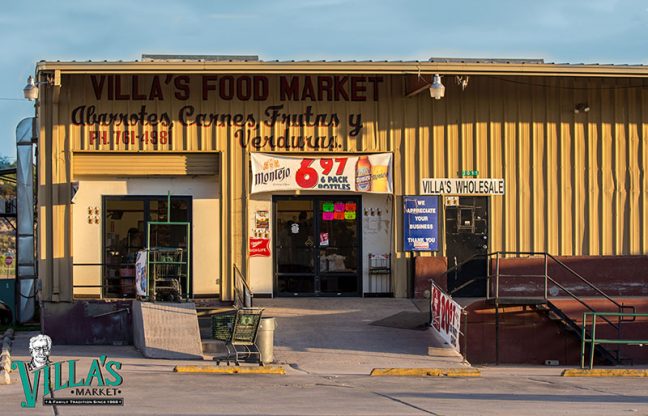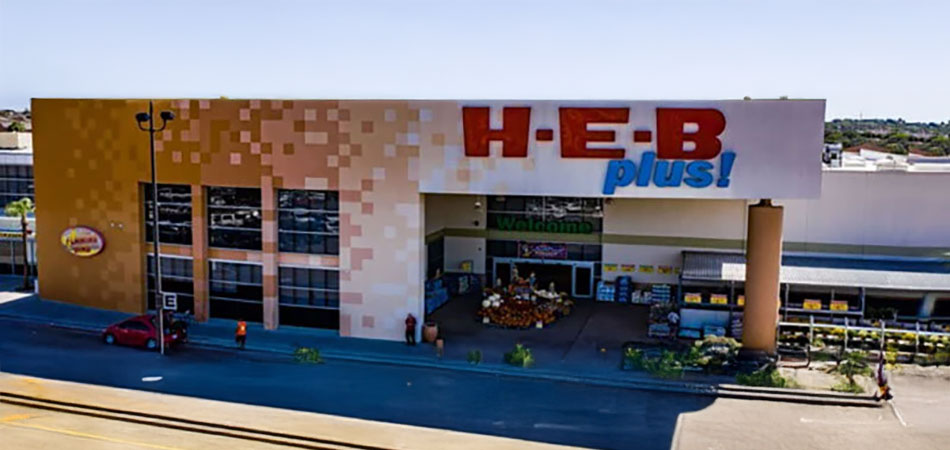U.S. grocery shoppers continue to battle to affordably feed their families, wherever they live. From inflation following the COVID-19 pandemic to tariffs going into effect under the new presidential administration, prices are driving shoppers to form new habits and/or make some tough decisions.
In towns along the U.S. border with Mexico – located in the states of Texas, New Mexico, Arizona and California – that can sometimes mean crossing in to Mexico to shop, where the exchange rate is strong and they can find some items at a lower price and perhaps a larger selection in certain categories. Sometimes it means shoppers from Mexico – who have visas or U.S. citizenship – coming into the U.S. to get items that are less expensive here and possibly better variety.
In the town of Nogales, Arizona, one grocer is making that trip easier with free bus service to the store for people crossing into the U.S. at Ambos Nogales, a border region that includes both Nogales, Arizona, and Nogales, Sonora, according to a May 30 story in CALO News Arizona.
The privately operated bus from Villa’s Market began operating in April, running once an hour for eight hours (10 a.m.-6 p.m.), Wednesday through Sunday. The goal is to attract new customers who don’t have a car to cross the border and would have to pay for transportation to get to a store a few miles away. The bus waits as they do their shopping before heading back to pick up the next group. 
According to the article, items like gallons of milk and breakfast cereal are less expensive on the U.S. side of Nogales. And the cereal selection is broader.
Villa’s Market, a third-generation family-owned grocery business founded by Mario Villa in 1968, says on its website: “Villa’s is best known for affordable quality products, which include grocery, meats and fresh produce. We offer essential alternatives to the chain supermarkets, often carrying products that can only be found here at competitive prices.”
Villasmarket.com lists the store in Nogales and one in Tucson, as well as a wholesale business in Nogales as the scope of its enterprise.
The stores offer a wide selection of products from Mexico, as well as marinated options in meat, seafood and poultry.
A market observer said one of the biggest challenges for U.S. grocers operating stores near the border – no matter which state they’re in – is to make sure they are catering to the specific needs of shoppers, wherever they hail from.
“The tricky part about trying to appeal to consumers that are from south of the border is to assume that they’re all from Mexico,” he said. “That’s a huge mistake – because they’re not.
“Some are from Mexico, but they may be from Central and South America, and they all have their different preferences for products and spices. It makes it very difficult, even within the Hispanic market, to get it right.”
But getting it right is very important, he said, noting that larger retailers don’t necessarily have the capacity – or perhaps take the time – to learn what brands customers want, so they might carry one national brand to try to please them all.
“When they’re looking for their familiar label from Colombia or from Panama or wherever … that independent grocer – that is probably a Hispanic grocer – is going to have it,” he said, likely yielding a loyal customer. In fact, he says many of these grocers are regularly revisiting their product mix to make sure they are carrying the appropriate brands for the consumers.
Those from countries outside the U.S. and along the border have preferences not only for certain brands but also for certain cuts in the meat case. In addition to marinated meats, as Villa’s Market and many other Hispanic grocers offer, they also embrace lesser-known cuts, which typically are more affordable than whole-muscle cuts.
These customers “are still in their kitchens cooking,” the market observer added. “They’ve learned recipes – recipes have been handed down – so they can take just about anything and make a meal.”
In Laredo, along the west Texas border with Mexico, several local meat markets “fill a niche” in the grocery arena, according to Texas Retailers Association grocery industry consultant Gary Huddleston. These include El Rancherito Meat Market, All Season Meat Market and Narvaez Beef.
They compete alongside grocers such as H-E-B, which operates seven H-E-Bs and one H-E-B plus! store in the Laredo area.
Many independent stores in more rural areas are “making their money by being kind of a restaurant/grocery store/deli,” the market observer noted.
Some of the best stores at this hybrid model are out of California, he added, but also can be found in Texas cities like El Paso, San Antonio, Dallas and Houston, and “their meat cases are full of freshly butchered fajita meat. They season it for a day or two, and they’re selling that stuff like crazy.”
Speaking of El Paso, the far west Texas town near the Mexican border, Walmart operates 10 supercenters and nine Neighborhood Markets, and Whole Foods Market has one store. As in many markets around the country, a strong contingent of independents serves area residents as well.
Some grocers in border towns had concerns about what would happen when crossing controls were reinstated under the new administration. But those concerns have not necessarily been warranted.
One grocer, who requested anonymity, said, “Even with the border being closed, we’re still seeing super strong sales, which means that the folks that are already here [in the states] are still shopping with us. We’re not seeing people coming across the border shopping and going back home.
“The hassle of trying to get through the border and back … isn’t worth [it]. We were thinking, ‘Well, our sales are going to go down.’ Well, lo and behold, there weren’t that many people doing that. The sales were coming from within.”
The grocer added that wholesalers that do significant business with Mexico to provide products to U.S. grocers are the ones really wrestling with the tariff issue.
“We truly don’t deal with it on the buying end because that’s done for us through [our wholesaler]. They’re the ones who are having to deal with ever-changing prices and inventories and shipments coming from south of the border. I know they’re pulling their hair out to try to do it. We just get the new price and apply it.”
[RELATED: Led by Lone Star State, Southwestern U.S. Ripe For Grocers]

